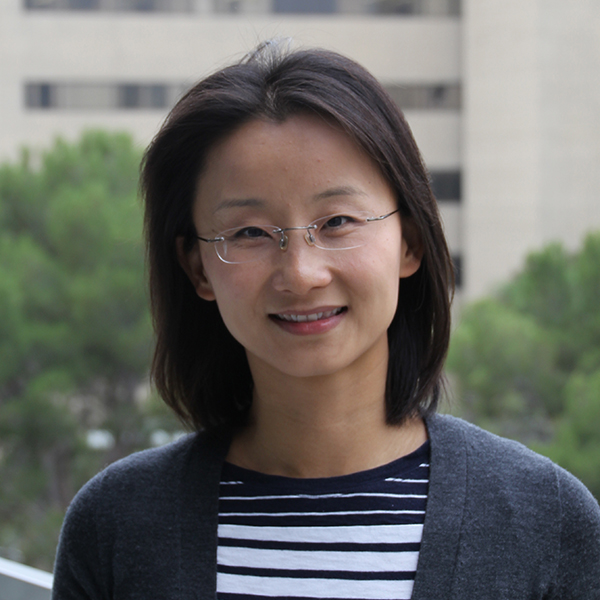
Why do some leukemia patients have more aggressive disease, and why do some of their cancer cells resist treatment? USC Stem Cell scientist Rong Lu is tackling these critical questions with $550,000 of support from the Leukemia & Lymphoma Society’s Career Development Program.
The program is designed to support talented blood cancer researchers in the early phase of their careers.
“It’s a new research effort in the lab and also a new research area for myself, because I’m trained as a stem cell biologist,” said Lu, who is now a Leukemia & Lymphoma Society Scholar. “We will use a tool that we developed for studying stem cells to study leukemia cells from patients with acute lymphoblastic leukemia.”
The tool is a system for labeling individual cells with unique “barcodes,” composed of short sequences of genetic information.
The Lu Lab is using their barcode tool to label leukemia cells and then transplanting these malignant cells into mice undergoing cancer treatment regimens. The lab is tracking the individual barcoded leukemia cells in order to learn about their regulatory mechanisms—including mutations and other changes that enable the most aggressive leukemia cells to initiate cancer, proliferate, migrate, and resist treatment.
“We expect to identify the key cellular and molecular events that drive leukemia onset and relapse, with the goal of improving both diagnosis and treatment for patients,” said Lu.
In order to create this clinically relevant model of leukemia, Lu is collaborating with two physician-scientists: Akil A. Merchant at Cedars-Sinai Medical Center; and Markus Müschen at City of Hope.
“I’ve gained insights into how difficult clinical decisions are made,” said Lu, who is also a Richard N. Merkin Assistant Professor of Stem Cell Biology and Regenerative Medicine, Biomedical Engineering, Medicine and Gerontology at USC. “There are so many questions that physicians have in their minds, and they love to talk with someone who can solve these problems. I’m quite excited about the conversation with them, and I’ve learned a lot during the process.”
According to Lee Greenberger, chief scientific officer at the Leukemia & Lymphoma Society, “Bringing the state-of-the-art expertise of Dr. Lu to understand the evolution of mutant cells that drive leukemia is a critical step toward improving treatments for this deadly disease. Beyond this, scientists supported by our Career Development Program over the past 70 years have consistently demonstrated that these grants are foundational for advancing careers and pay back many times over in the years ahead. We are delighted to support the work of Dr. Lu.”
